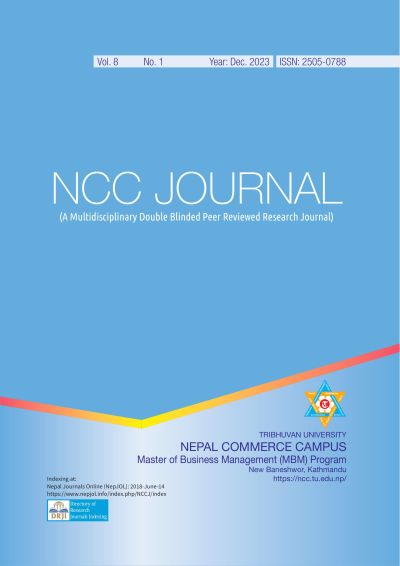The Structure of Wage and Salary Administration in Japan
DOI:
https://doi.org/10.3126/nccj.v8i1.63740Keywords:
Base wage, average wage, wage determination, Japanese system of seniority, government labor policy, labor-management, cooperative labor unionsAbstract
The purpose of this paper is to reveal the basic structure of wage administration in Japan. Total wages are the subject of labor-management negotiations in Japan. The base wage (average rate) serves as a basis for negotiations. This means that wage negotiations in Japan are conducted between labor and management within the framework of administration. Negotiations over average wages were proposed by the government immediately after the defeat in the war to stabilize prices. Originally, labor unions demanded minimum wages by age group. However, the method of negotiation over average wages has been rooted in the rise of labor-management cooperative labor unions. In this way, a structure has been established in which total wages are determined through negotiations over average wages on the assumption of labor-management cooperative labor unions, and total wages are allocated to individual employees based on seniority. This, along with the centralization of wage negotiations to management and labor union leaders, has led to a decline in employee interest in wages through the backdown of wage negotiations in the workplace.
Downloads
Downloads
Published
How to Cite
Issue
Section
License
© Nepal Commerce Campus, Tribhuvan University
CC BY-NC: This license enables reusers to distribute, remix, adapt, and build upon the material in any medium or format for noncommercial purposes only, and only so long as attribution is given to the creator.




